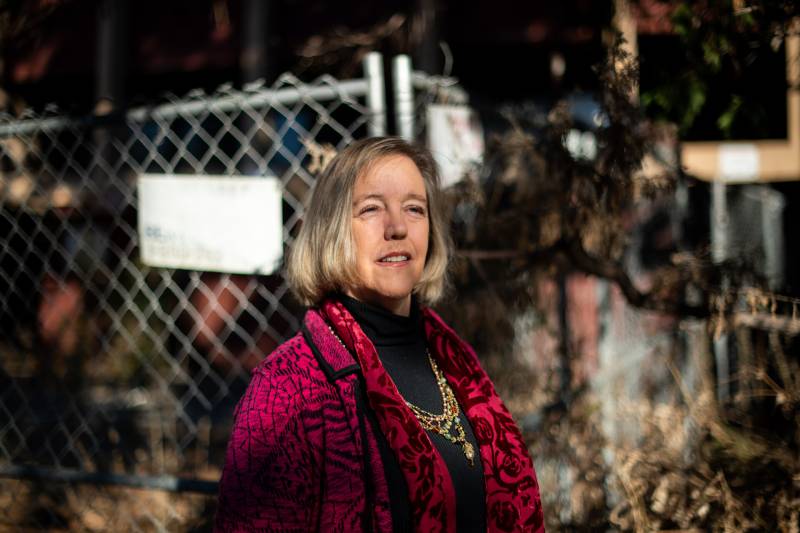Governing in Berkeley suddenly got more complicated with the unexpected resignation of Councilmember Kate Harrison in the middle of Tuesday night’s council meeting. Her departure follows the resignation of Councilmember Rigel Robinson earlier this month — who cited harassment and threats that made his position untenable.
But while Robinson also ended his run for mayor when he resigned from the council, Harrison — who said she was stepping down because she feels the way the city conducts its business is “broken” — is instead forging ahead with her bid to lead the city.
“It wasn’t planned,” Harrison told KQED of her dramatic departure on Tuesday night. She explained that the prepared statement she read before exiting the chamber — reciting a litany of criticisms — basically summed up “a frustration of mine that’s been building.”
That frustration, she added, reached a breaking point when the city consistently failed to follow its own processes in recent months and when council meetings became dysfunctional.
The two surprise departures come after months of particularly contentious council meetings, in which protesters have decried the recent police takeover of People’s Park and demanded that the city adopt a Gaza cease-fire resolution. According to the Berkeley Scanner and Berkeleyside, Tuesday night’s meeting was tumultuous even before Harrison’s resignation — marked by vocal calls from the public for a Gaza cease-fire resolution.
